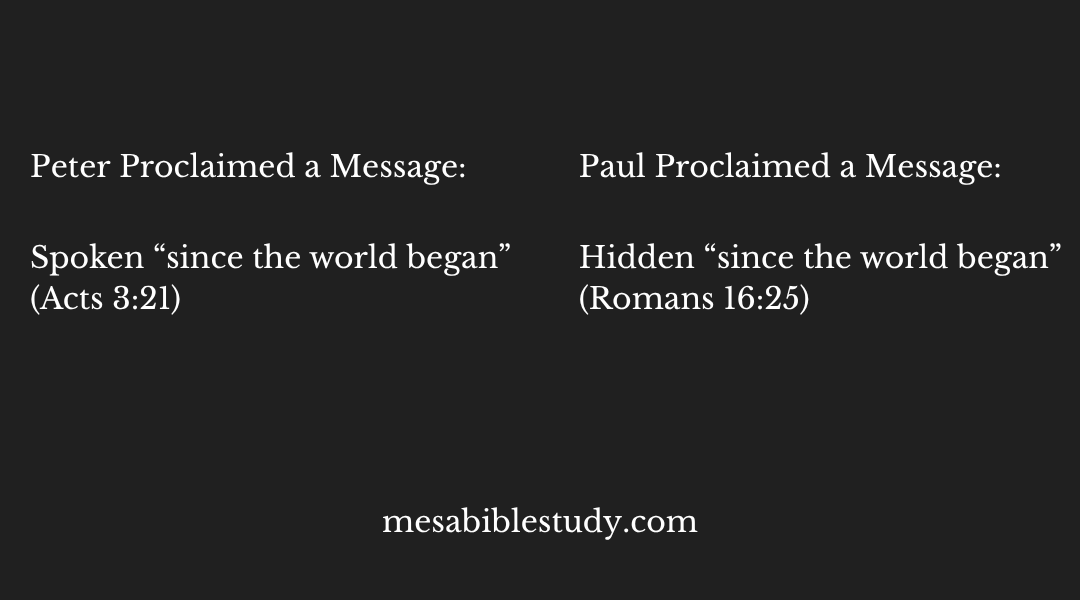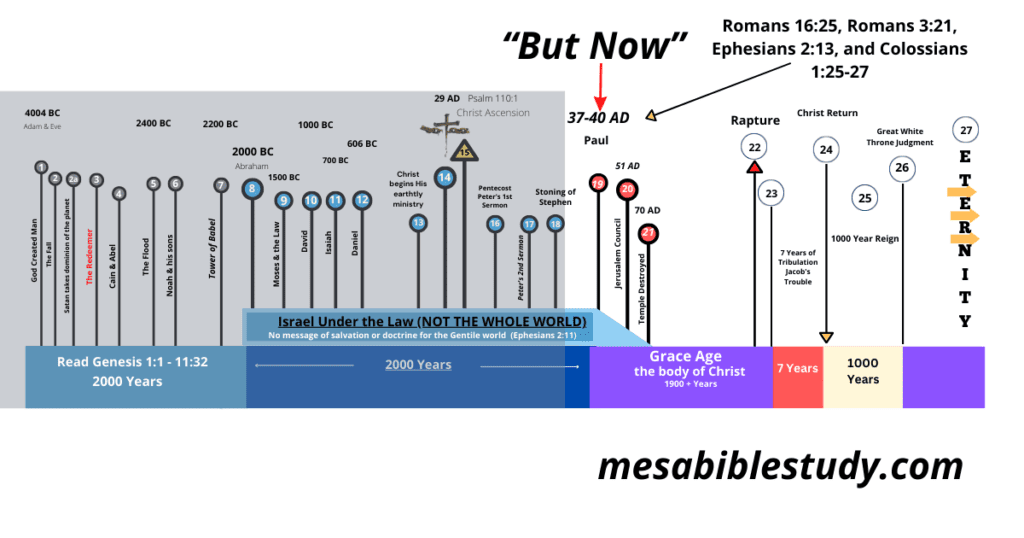
by Jamie Pantastico | Nov 7, 2025 | Devotionals |
Devotional: The Creator on the Cross
Colossians 1:16–17 – “For by Him all things were created that are in heaven and that are on earth, visible and invisible… All things were created through Him and for Him. And He is before all things, and in Him all things consist.”
Context & Connection
The Lord Jesus Christ—God the Son—spoke the very words that brought all things into existence. He is not only the Author of creation but also its Sustainer. Every breath drawn, every heartbeat felt, every law of nature that holds together—exists because of Him.
Paul reminds us in Colossians 2:9 that “in Him dwells all the fullness of the Godhead bodily.” The same God who spoke galaxies into being, took on flesh, and entered His own creation. He humbled Himself, walking the path to the cross for the very people He made.
Devotional Insight
He was nailed to a cross made from trees He created and died upon a hill He Himself had formed with His words. The very soldiers who drove the nails into His hands were His creation—men He knew by name before they were born.
This is the unfathomable love of God on display. The Creator willingly subjected Himself to the pain, rejection, and suffering of His own creation so that sinners could be reconciled to Him. The One who holds the universe together allowed Himself to be broken for our redemption.
When we grasp even a glimpse of this truth, pride and self-reliance fade. We stand in awe of a Savior who could have spoken one word and disintegrated the cross—but instead, He stayed. Love held Him there.
Encouragement for Today
Take a moment today to meditate on who Jesus truly is—God in flesh, the Creator of heaven and earth— “For He made Him who knew no sin to be sin for us, that we might become the righteousness of God in Him (2 Corinthians 5:21).”
Every trial you face, every fear you carry, every burden you bear—He understands, because He entered into our humanity. The One who created all things also nailed your sin to the cross.
Let that truth steady your heart and renew your gratitude. The hands that formed the universe are the same hands that were pierced for you.
📖 Reading Plan:
- John 1:1–3 – In the beginning was the Word… and all things were made through Him.
- Colossians 1:15–20 – Christ, the image of the invisible God, holds all things together.
- Philippians 2:5–11 – He humbled Himself and became obedient to death—even the death of the cross.

by Jamie Pantastico | Nov 7, 2025 | Pauline Theology |
This is Part 1 of the series The Mysteries Revealed to Paul, exploring the divine truths hidden in God and revealed to the Apostle Paul.
Introduction
One of the most transformative truths in God’s word is recognizing the distinct roles of the Apostle Paul and the Twelve Apostles in God’s redemptive plan. Many assume Paul simply joined Peter’s team after his conversion—but Scripture reveals something radically different.
Paul was given a new message by revelation from the risen Lord Jesus Christ: the Gospel of the Grace of God and the unveiling of divine “mysteries” kept hidden since before the foundation of the world. In contrast, Peter and the Eleven preached the prophetic program—truths “spoken by the mouth of all His holy prophets since the world began” (Acts 3:21)
This post explores that crystal-clear distinction: what a “mystery” truly is, how God progressively revealed His plan, and why Paul’s unique apostleship changes how we understand the Church Age, and Israel’s future.
1. What Is a “Mystery” in Scripture?
The word mystery (mystērion, Greek) means a secret or hidden truth known only to God until He chooses to reveal it. It’s not a riddle to solve but a truth that was completely concealed until God made it known.
“The secret things belong to the LORD our God, but those things which are revealed belong to us and to our children forever.” — Deuteronomy 29:29
This verse establishes that God, in His sovereignty, keeps secrets and reveals them in His timing. Once revealed, they belong to us to believe and obey.
Paul uses mystery repeatedly in his epistles (Romans through Philemon) to describe truths that were hidden from the prophets, the Gospels, and early Acts.
“Now to Him who is able to establish you according to my gospel and the preaching of Jesus Christ, according to the revelation of the mystery kept secret since the world began.” — Romans 16:25–26
This stands in direct contrast to Peter’s message:
“Which God has spoken by the mouth of all His holy prophets since the world began.” — Acts 3:21
The prophetic program was foretold; Paul’s mysteries were hidden. This is the foundation for understanding God’s eternal purpose which He accomplished in Christ Jesus our Lord.
2. The Progressive Nature of Biblical Revelation
The Bible is a progressive revelation. God unfolded His truth in stages, through different people and dispensations, according to His sovereign purpose.
- To Moses, God gave the Law, establishing Israel as His covenant nation (Exodus 19:5–6).
- To the prophets, God revealed the coming Messiah and Israel’s restoration (Isaiah 9:6–7).
- To Peter and the Eleven, Christ entrusted the Gospel of the Kingdom, calling Israel to repentance (Matthew 10:5–7; Acts 2:36).
- To Paul, the ascended Lord revealed the Dispensation of Grace (Ephesians 3:2), unveiling mysteries never before made known—centered on the Body of Christ and salvation by grace through faith alone.
This progressive revelation means we cannot merge the Gospel of the Kingdom (prophecy) with the Gospel of Grace (mystery). Mixing them obscures God’s distinct purposes and leads to confusion.
3. Paul’s Unique Calling as the Apostle to the Gentiles
Paul’s apostleship was not a continuation of Peter’s ministry—it was a divine commissioning for a new dispensation.
“But the Lord said to him, ‘Go, for he is a chosen vessel of Mine to bear My name before Gentiles, kings, and the children of Israel.’” — Acts 9:15
Unlike the Twelve—who were sent to Israel during Christ’s earthly ministry—Paul was sent to the Gentiles with a new message of grace.
“For I speak to you Gentiles; inasmuch as I am an apostle to the Gentiles, I magnify my ministry.” — Romans 11:13
Paul emphasized that his gospel came directly from the risen Lord, not from man:
“But I make known to you, brethren, that the gospel which was preached by me is not according to man. For I neither received it from man, nor was I taught it, but it came through the revelation of Jesus Christ.” — Galatians 1:11–12
At the Jerusalem Council, the distinction between Paul’s ministry and Peter’s was formally recognized:
“They saw that the gospel for the uncircumcised had been committed to me, as the gospel for the circumcised was to Peter.” — Galatians 2:7–9
Paul’s revelation of the Body of Christ was unknown to Peter and the Eleven. Their message was prophetic; Paul’s was mysterious—hidden until revealed through him.
4. Biblical Timeline

5. The Eight Mysteries Revealed to Paul
To grasp the magnitude of Paul’s apostleship, consider the eight divine mysteries revealed exclusively to him—truths defining the Church Age.
| Mystery |
Reference |
Explanation |
| 1. Mystery of His Will |
Ephesians 1:9–10 |
God’s plan to reconcile all things in Christ, in heaven and on earth, apart from Israel’s covenants. |
| 2. Mystery of Christ |
Ephesians 3:3–6 |
Christ as Head of the Body, uniting Jew and Gentile equally in one spiritual organism. |
| 3. Mystery of the Body of Christ |
Colossians 1:24–27 |
The Church—Christ indwelling believers—was hidden from past generations. |
| 4. Mystery of God |
Colossians 2:1–3 |
Reveals the fullness of the Triune God in Christ, the source of all wisdom and completeness. |
| 5. Mystery of Godliness |
1 Timothy 3:16 |
God manifest in flesh, justified in Spirit, preached among Gentiles—revealed as the pattern for godly living. |
| 6. Mystery of Israel’s Blinding |
Romans 11:25 |
Israel’s partial, temporary blindness until the fullness of the Gentiles comes in. |
| 7. Mystery of the Rapture |
1 Corinthians 15:51–52; 1 Thessalonians 4:16–17 |
The sudden translation of the Church—a truth never prophesied. |
| 8. Mystery of Iniquity |
2 Thessalonians 2:7 |
The restrained power of lawlessness that will culminate in the rise of the Antichrist after the Rapture. |
6. The Undeniable Contrast
The difference between Peter’s prophetic gospel and Paul’s revealed mysteries is undeniable:
| Peter’s Prophetic Program |
Paul’s Mystery Program |
| Spoken “since the world began” (Acts 3:21) |
Hidden “since the world began” (Romans 16:25) |
| Focused on Israel and the earthly kingdom |
Focused on Jew and Gentile in one Body |
| Message: repentance, baptism, Messiah’s reign (Acts 2:38) |
Message: grace through faith alone (1 Corinthians 15:1–4) |
| Law still in operation |
Law nailed to the Cross (Colossians 2:14) |
| Earthly hope in the Kingdom |
Heavenly hope in Christ (Philippians 3:20–21) |
Peter’s ministry looked forward to Israel’s restoration; Paul’s revelation unveiled a new Body of believers destined for heaven.
7. End-Time Events: Magnified, Not Diminished
Recognizing Paul’s distinct message doesn’t diminish prophecy—it magnifies it. The mystery of the Church Age fills the prophetic gap between Israel’s rejection and her future restoration.
“Blindness in part has happened to Israel until the fullness of the Gentiles has come in.” — Romans 11:25
Israel’s blindness is partial, not permanent. When the Church is caught up, God will resume His dealings with Israel, fulfilling every promise and covenant (Romans 11:26–29). God’s faithfulness to Israel guarantees His faithfulness to us.
8. Why This Matters
Understanding this distinction changes everything. It clears confusion about salvation, the Church, and prophecy. We are not under Israel’s law or kingdom program but under grace.
“For you are not under law but under grace.” — Romans 6:14
Paul’s epistles (Romans–Philemon) are God’s instructions for the Church today. They reveal our position in Christ, our heavenly hope, and our walk under grace until the trumpet sounds.
“For the Lord Himself will descend from heaven with a shout… and the dead in Christ will rise first. Then we who are alive and remain shall be caught up together with them in the clouds to meet the Lord in the air.” — 1 Thessalonians 4:16–17
Conclusion
The crystal-clear distinction between Paul’s mysteries and the prophetic program is the key to understanding God’s great plan of salvation. God’s prophetic dealings with Israel were paused, not canceled, to make room for this present dispensation of grace.
Paul’s mysteries unveil the hidden purpose of God: one Body, one Head, one heavenly hope. Understanding these truths illuminates all Scripture and magnifies the faithfulness of God.
Scripture References
Acts 3:21; Romans 16:25–26; Ephesians 3:2–6; Galatians 1:11–12; Romans 11:25–29; Colossians 1:24–27; 1 Thessalonians 4:16–17; 2 Timothy 2:15; Deuteronomy 29:29.
🔄 Continue the Series
You’re reading Part 1 of the series The Mysteries Revealed to Paul.
→ Part 2 – The Mystery of His Will
Back to The Mysteries Revealed to Paul Series

by Jamie Pantastico | Nov 4, 2025 | Bible Doctrine |
The Contrast Between Wages and the Gift — Romans 6:23
Romans 6:23 – “For the wages of sin is death, but the gift of God is eternal life in Christ Jesus our Lord.”
Context & Connection
The Apostle Paul draws one of Scripture’s most striking contrasts in this single verse—wages versus gift, death versus life. Romans 6:23 captures the essence of the gospel in just a few words. It shows us the tragic outcome of sin (old Adam) and the glorious hope found only in Christ.
Paul’s language is deliberate. Wages are earned—something we work for, something owed; paid out by old Adam. A gift, on the other hand, is freely given by God—One belongs to the old nature, the other to the new creation.
Passage Breakdown
The first half of the verse—“For the wages of sin is death”—speaks to every person born under Adam. The old Adamic nature, the one we’re all born with, knows only one direction: toward death. Eternal separation from God. Everything the unbeliever does—whether seemingly good or bad—apart from faith in Christ, only adds to that debt.
Wages are never a gift. They are payment—what we rightfully earn for what we’ve done. And the sobering truth is this: sin “old Adam” always pays its wages in full.
But then comes the glorious flip side: “But the gift of God is eternal life…”
This is where the entire tone of Scripture shifts—from what man earns to what God freely gives. Salvation is not something we can earn, deserve, or add to. It is a divine gift—purchased by the blood of Christ and offered freely to all who believe the gospel.
Paul emphasizes this again in Ephesians 2:8–9:
“For by grace you have been saved through faith, and that not of yourselves; it is the gift of God, not of works, lest anyone should boast.”
Wages come from effort. Gifts come from grace. And grace is the heart of the gospel.
Encouragement
The beauty of Romans 6:23 lies in its contrast. The first half reminds us of what we deserve and what we earn in our lost estate; the second half reveals what God freely gives to all who believe the gospel.
We could never work enough, strive enough, or clean ourselves up enough to earn eternal life. It must be received as a gift—by faith alone in the finished work of Christ.
If you have trusted Him, your wages have been paid in full at the cross, and the gift of eternal life is already yours.
So today, rest in the wonder of God’s amazing grace. Celebrate the gift. And remember—while sin (old Adam) pays wages unto death, God gives life, and life eternal.
📖 Reading Plan:
- Romans 5:15–18 – The contrast between Adam and Christ.
- Ephesians 2:8–9 – Salvation is the gift of God.
- Titus 3:4–7 – Not by works of righteousness, but by His mercy He saved us.

by Jamie Pantastico | Nov 2, 2025 | Devotionals |
Introduction
When life overwhelms us with guilt, failure, or fear, Romans 8:34 brings clarity and comfort: Christ Jesus is the One who died, rose again, and now intercedes for us. This verse doesn’t just remind us of what Jesus has done—it assures us of what He is doing right now.
We have an Advocate at the right hand of God who knows us, loves us, and pleads on our behalf. The same Jesus who bore our sins is the One who stands in our defense—every moment of every day.
Romans 8:34 – Christ, Our Intercessor
Verse Focus:
“Who is he who condemns? It is Christ who died, and furthermore is also risen, who is even at the right hand of God, who also makes intercession for us.” — Romans 8:34
Context & Connection:
Following the assurance that no one can bring a charge against God’s elect (Romans 8:33), Paul now declares that no one can condemn us either. Why? Because Jesus Christ Himself—our Savior, Redeemer, and Advocate—died for us, rose again, and now intercedes for us at the right hand of God.
Devotional Insight:
Condemnation is a powerful weapon of the enemy. Many believers struggle with guilt and shame over past sins, feeling unworthy of God’s love. But Paul reminds us that Christ has already paid the penalty for our sins. His resurrection proves that His sacrifice was accepted, and now, instead of condemning us, He intercedes for us.
Right now, Jesus is at the right hand of the Father, advocating for you (Hebrews 7:25). When you stumble, He speaks on your behalf. When you feel weak, He strengthens you. When the enemy accuses, He defends. Because of Christ’s finished work, no one—not even yourself—can condemn you.
Bible Reading Plan:
- John 3:17 – Jesus did not come to condemn but to save.
- Hebrews 7:25 – Christ always lives to make intercession for us.
- 1 John 2:1-2 – Jesus is our advocate before the Father.
Word of Encouragement:
You are not condemned—you are redeemed! Jesus stands as your advocate, ensuring that no charge or condemnation can separate you from God’s love. Walk in the confidence of His grace, knowing that He is always interceding for you.

by Jamie Pantastico | Oct 31, 2025 | Devotionals |
Delivered Through Every Trial: The Faithfulness of God
📖 Part 5 of 5 — The Overcomer Series
A five-day devotional journey showing how God transforms fear into faith, weakness into strength, and affliction into refinement through Christ.
Psalm 34:19 – “Many are the afflictions of the righteous, but the Lord delivers him out of them all.”
Context & Connection
David penned these words after a season of fear and deliverance. Though he had fled for his life and faced humiliation before his enemies, he declared with confidence that the Lord had rescued him. This psalm reminds believers that affliction is not a sign of abandonment but of divine refinement.
The Apostle Paul echoes this same truth in 2 Corinthians 4:8–9: “We are hard-pressed on every side, yet not crushed; we are perplexed, but not in despair; persecuted, but not forsaken; struck down, but not destroyed.” God’s deliverance doesn’t mean we avoid trials—it means we’re sustained through them.
Devotional Insight
Affliction is woven into the life of every believer. We are not immune to hardship, but we are promised deliverance through it. David’s words are not theoretical—they are the voice of experience from a man who had seen God’s hand in the darkest moments.
Paul’s life mirrors that same reality. The enemy pressed hard against him, yet he was never crushed. Why? Because the power that raised Christ from the dead sustained him. Affliction will not destroy you—it will refine you. It burns away self-reliance and deepens your dependence on God’s strength.
When trouble comes, remember: deliverance is not always the removal of hardship, but the Lord’s faithful presence in the midst of it.
Encouragement for Today
Whatever trial you face today, know this—the Lord delivers His own. He has not forgotten you, and He never will. Every difficulty has an expiration date, but His faithfulness endures forever.
Stand firm. The same God who delivered David and sustained Paul will do the same for you. Your Deliverer is not distant—He’s right there in the fire, turning affliction into refinement and trial into testimony.
📖 Reading Plan:
- Psalm 37:39–40 – The Lord delivers them out of all their troubles.
- 2 Corinthians 4:7–10 – We are pressed but not crushed.
- Romans 8:18 – The sufferings of this present time are not worthy to be compared with the glory that shall be revealed.





